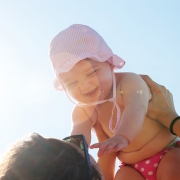
Do not put infants in direct sunlight. Due to their relatively thinner skin, infants under 6 months should be covered to avoid direct sun exposure. Dress your infant in: lightweight long pants long-sleeved shirts brimmed hats that shade the neck When adequate clothing and shade are not available, parents can apply a minimal amount of … Continue reading “Sun Exposure”
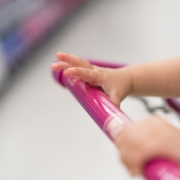
Shopping with your baby can be a challenging experience. Serious injuries are quite common from shopping carts. Place the baby carrier in the deep basket of the shopping cart, recruit an older sibling to help supervise your baby if they must be in the shopping cart, or leave your baby at home when possible. Read … Continue reading “Shopping Carts”
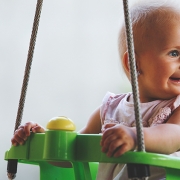
Product recalls are meant to keep dangerous products off the shelves. Parents often encounter difficulty remaining aware of product recalls. Consider some easy tips to help ensure your family stays safe such as signing up for email notices to notify you when a product is recalled or visiting websites that maintain up to date information … Continue reading “Product Recalls”
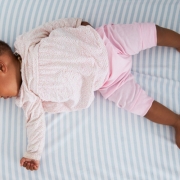
Always put your baby to sleep on his back and on a firm sleep surface. Keep soft objects, loose bedding, or any other objects that could increase the risk of entrapment, suffocation, or strangulation out of the crib. Place your baby to sleep in the same room with you but not the same bed. Your … Continue reading “Preventing SIDS – Sleep Positioning”
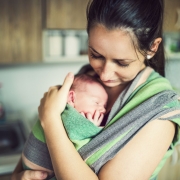
Having a new baby can be an exciting time, but it can also bring new stressful demands. Parents quickly find that infants have their own personalities and start exploring the world around them at a very young age. It is important to make your home and your baby’s environment safe and nurturing from the beginning. … Continue reading “Parenting”
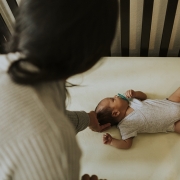
A pacifier may help to satisfy the need of sucking infants beyond their need to eat. The use of a pacifier at nap time and bedtime may lower the risk of SIDS (Sudden Infant Death Syndrome). Never put a pacifier on a cord around an infant’s neck, wrist or crib as this may cause accidental … Continue reading “Pacifiers”
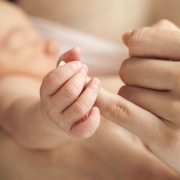
The only care your child’s nails require is trimming. You can use a soft emery board. You can also tear the excess nail by gently grabbing the corner of the white tip of the nail and pull towards you across the nail. We do not recommend using scissors or nail clippers in the first few … Continue reading “Fingernail & Toe Care”
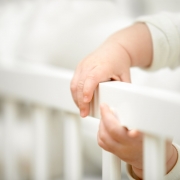
Your baby’s bedroom and crib should be extra safe. Choosing a crib that complies with appropriate safety standards will help keep your baby safe. Slats and rails should conform to standards for spacing and height, and mattresses should be very firm and fit snugly, leaving no space between the mattress and the walls of the … Continue reading “Cribs”
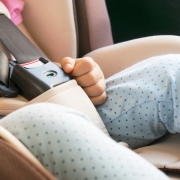
The use of car seats appropriate for each child’s age and size helps to maximize automobile safety. Infants and toddlers should ride in a rear-facing seat until they are at least 2 years of age or reach the highest weight or height allowed by the manufacturer of their car seat. Read More: HealthyChildren.org HighwaySafety – … Continue reading “Car Seats”
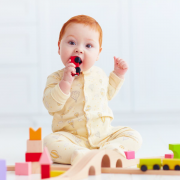
Article at a Glance